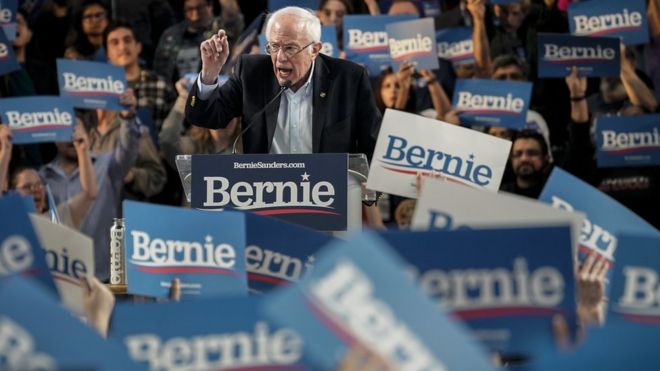Bernie Sanders is the national frontrunner for the Democratic presidential nomination. The Vermont senator has promised a political revolution, but what does that mean? What does he actually stand for?
1. He's a democratic socialist - Sanders is a self-described "democratic socialist", but in his long political career he became comfortable with just "socialist" ("I am a socialist and everyone knows it," he once said, reports the Washington Post.) In 2015, he framed his political ideology this way: "Democratic socialism means that we must create an economy that works for all, not just the very wealthy."
2. Climate change is real - Sanders proposes a $16.3tn (£12.5tn) "Green New Deal" that he says would create 20 million jobs and pay for itself over 15 years, including through $3tn of taxes on oil companies. He has generated controversy by supporting the idea of population control through widening access to abortion and contraception for women in poor countries and last year tweeted: "Fossil fuel executives should be criminally prosecuted for the destruction they have knowingly caused."
3. College should be free - "Education must be an economic right for all, not a privilege for the few," Sanders wrote in an opinion piece last year. His $2.2tn plan to make college free is, like much of his policy platform, the most far-reaching in the Democratic field. It would include paying off all student loans for some 45 million Americans, regardless of their income or assets, leading some critics to portray it as an unlikely socialist giveaway to the rich.
4. Background checks on gun ownership - "The world has changed, and my views have changed," Sanders said at this year's New Hampshire presidential debate. Gun control used to be a rare sore point on his left flank. Now the senator from firearms-friendly Vermont wholly endorses such measures as expanded background checks for gun transactions, something he voted against in Congress back in 1993.













0 Comments